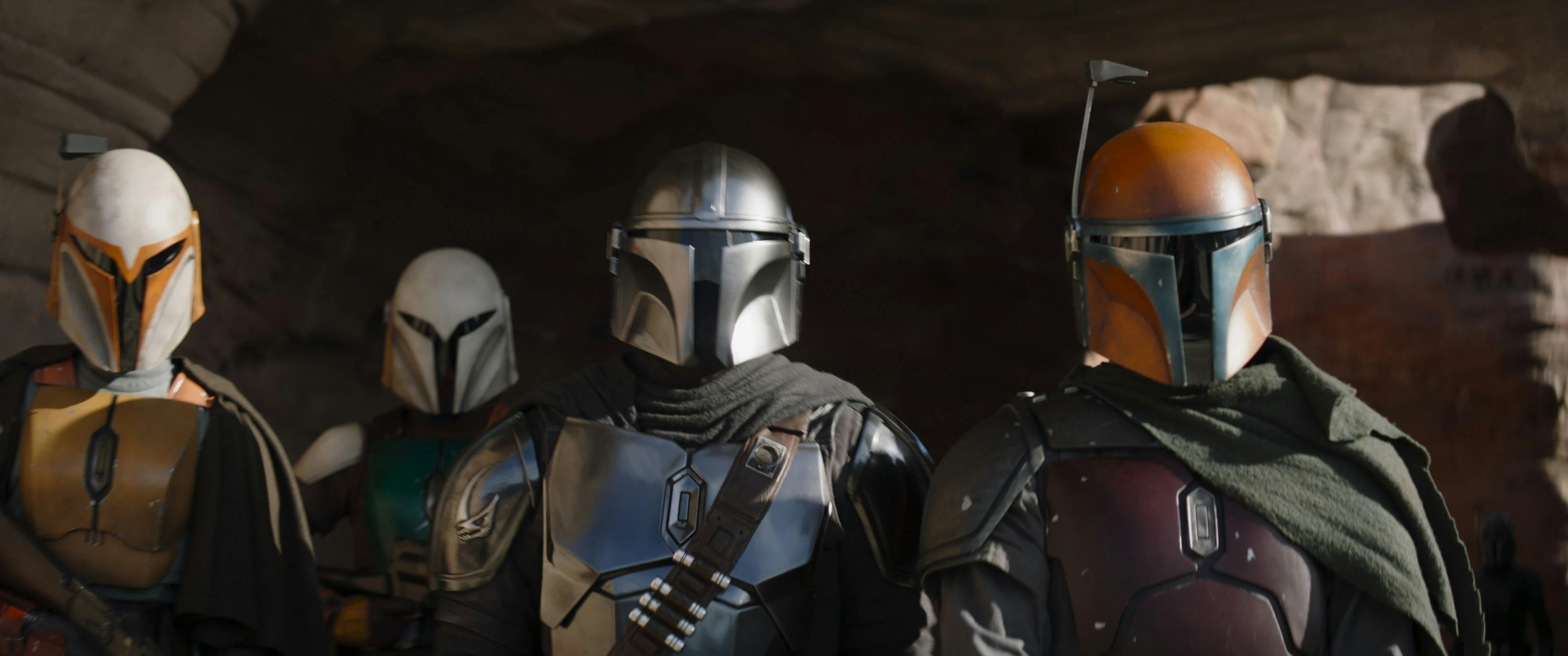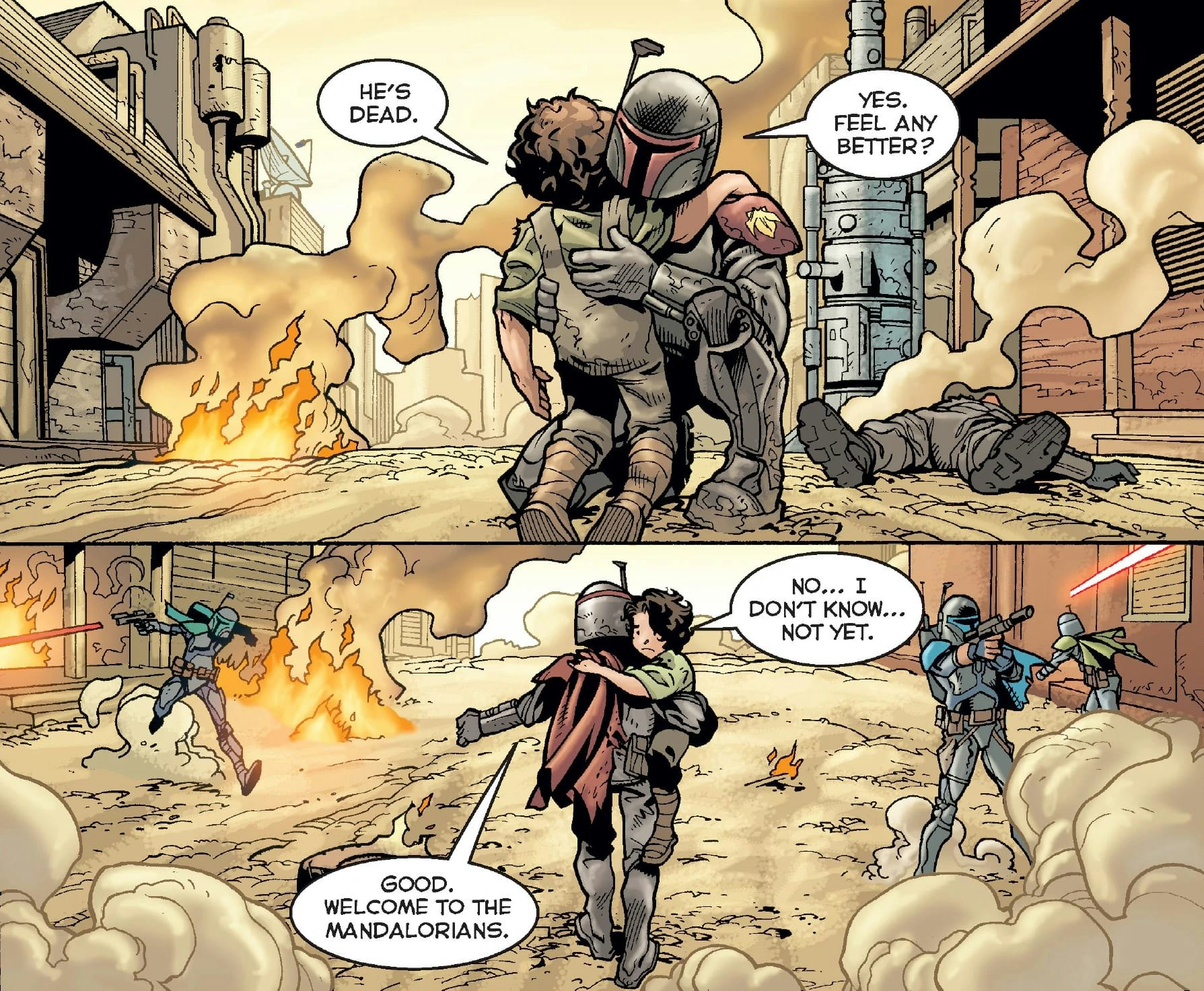
The Mandalorian has always skirted around the topic of its own history. The Armorer makes reference to The Way, but there’s no real explanation of what that means. Later, we learn Mando is a member of the Children of the Watch, but we never really understand who they are are where they come from. Mandalore is referred to as a “lost planet” and even a “cursed planet” with no explanation.
Now, in the lead-up to The Mandalorian Season 3, there are finally some answers. Mandalore survives, as do countless Mandalorians, but one question still remains: What exactly drove a wedge between Bo-Katan Kryze’s Mandalorians and the Children of the Watch?
Thankfully, one line from Season 2 explains it all.
The Mandalorian Civil War(s) explained
The Mandalorian Civil War usually means one thing in Star Wars canon: the conflict seen in The Clone Wars between the clans of Mandalore that spurred the foundation of the extremist group Death Watch. But in Chapter 14 of The Mandalorian, Boba Fett mentions his father, saying that “he even fought in the Mandalorian Civil Wars.”

The Civil Wars, plural, are an entirely different conflict. As depicted in the non-canon Jango Fett: Open Seasons comics, decades before the Clone Wars, the Mandalorians were cleaved into two over an argument about the purpose of the Mandalorians in general. On one side was the Mand’alor (the traditional leader of the Mandalorians) Jaster Mereel, who thought The Mandalorians should be honorable mercenaries, much like Din Djarin’s vocation as a bounty hunter.
In the other corner was Tor Viszla, the leader of the Death Watch (predecessor to the Death Watch we see in The Clone Wars). According to Tor Viszla — the namesake for Pre Viszla in The Clone Wars who in turn was the namesake for Paz Viszla in The Mandalorian — Mandalorians were meant to return to their savage roots as raiders.
The conflict lasted more than a decade and ended with a huge skirmish on the planet Galidraan that resulted in every “True Mandalorian” (save Jango Fett) slaughtered. Eleven Jedi also died after responding to reports of civilian casualties.
What this means for The Mandalorian Season 3
Slowly but surely, the action of The Mandalorian is leading to a rehash of these wars. On one side is Din Djarin, a devout member of the Children of the Watch. Djarin believes in adopting members of the creed, just like Jaster Mereel did with Jango Fett.
There’s also a lot of hinting that Djarin could be the next Mand’alor and inherit Jaster’s title. You may recall Boba Fett showing off the hologram embedded in the Mandalorian armor he inherited from his father. The strange characters were decoded to read “Jaster Mereel,” subtly bringing this character into canon.
On the other side is Bo-Katan Kryze, a former member of the Death Watch who believes leading the Mandalorians is her birthright. She resents the zealotry of the Children of the Watch, and in her appearance in The Mandalorian it looked like she believes raiding and piracy are fair game for her kind.
Fixing Mandalorian canon

The one mystery still hanging over The Mandalorian — the schism between The Children of the Watch and the more standard Mandalorians — would be easily answered if the Mandalorian Civil Wars were folded into history. This would also give precedence to the Mand’alor term we’ve seen bandied about throughout The Mandalorian.
Outside of canon, this conflict would be a perfect fit. Dave Filoni is clearly a fan of this part of Jango Fett’s backstory, considering its heavy influences on The Clone Wars, and Jon Favreau has lent his voice to both Tor Vizsla’s namesake and grand-namesake, Pre and Paz Viszla. Why not go for the trifecta and introduce this half-decade-old villain via a flashback?
History repeats itself, and that’s extra true in Star Wars — especially when that history is once again written by Dave Filoni. He loves to borrow from Legends, and this war is tailor-made for where The Mandalorian is headed in Season 3.
The Mandalorian Season 3 premieres March 1 on Disney+.







